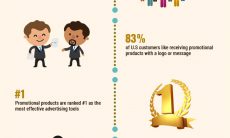Are you hounded by email pitches offering access to all kinds of prospective business targets? I am, and I hate it. As a B2B marketer, I am always interested in new customer data sources, so I feel compelled to at least give them a listen. But when I ask a few questions—like where their data comes from—answers come back like “A variety of sources” or “Sorry, that’s our intellectual property.” So, over time, I have come up with a 9-point assessment strategy to help marketers determine the likely legitimacy of a potential vendor, using approaches that can be replicated by anyone, at arm’s length.

Of course a lot of these emails are simply fraudulent. Early on, I stumbled upon an anonymous blog that reports on the most egregious of these emailers, and connects them to unscrupulous spammers tracked by Spamhaus. It’s pretty hilarious to learn that many of these data sellers are complete fakes, sending identical emails from fake companies and fake addresses.
So, if you want to just delete them all as a matter of course, that’s a reasonable strategy. Myself, I‘ve been throwing them in a folder called “suspicious data providers,” and every so often, I dig in, to see if there’s any wheat among the chaff. And that where this checklist was born.
I got some ideas from two colleagues who have written helpfully on this problem. Tim Slevin provides a nice 3-point assessment approach in the SLMA blog, where he recommends checking out the vendor’s physical address, researching them on LinkedIn, and asking them for a data sample so specific that you can tell whether their product is any good. All terrific ideas, which I have gladly incorporated in my approach.
Ken Magill, who writes an amusing and informative publication on email marketing, tackled this subject on behalf of one of his readers, who had unhappily prepaid for an email list that didn’t arrive. “You’re never going to see that $3000 again,” says Ken to the sucker. Ken offers a dozen or so red flags to look for when considering buying email addresses—and I have picked up some of his ideas, too. Magill wraps up his discussion with: “If you suspect you’d have trouble serving them with court papers, do not do business with them.”
So, to get to the point, here is my list of yes/no questions, which can be examined fairly easily, without any direct contact with the vendor.
- Do they have a website you can visit?
- Do they provide a physical business address?
- Do they have a company page on LinkedIn?
- Are the names of the management team provided on the website?
- Is there a client list on the website?
- Is there a testimonial on their website with a real name attached?
- Do they claim some kind of guaranteed level of the accuracy for their data?
- Do they require 100% pre-payment?
- Is the sales rep using a gmail or other email address unrelated to the company name?
For questions 7, 8, and 9, a “no” is the right answer. For the first 6, a “yes” is what you’re looking for. I’d say that any vendor who gets more than one or two wrong answers should be avoided. Any other ideas out there?






